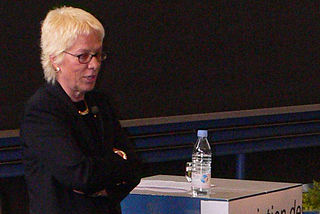 W
WA constitutional referendum was held in Rwanda on 26 May 2003. The new constitution created a presidential republic with a bicameral parliament, and banned the incitement of racial hatred. It was approved by 93% of voters with a 90% voter turnout. Following its approval, presidential elections were held on 25 August and parliamentary elections on 29–30 September.
 W
WParliamentary elections were held in Rwanda between 29 September and 2 October 2003. They were the first parliamentary elections since 1988 and the second multi-party national elections in the country's history. They were held following the approval of a new constitution in a referendum in August 2003.
 W
WPresidential elections were held in Rwanda on 25 August 2003. They were the first direct presidential elections since the Rwandan Civil War and the first multi-party presidential elections in the country's history. Paul Kagame of the Rwandan Patriotic Front (RPF) was elected to a seven-year term with 95% of the vote.
 W
WUnited Nations Security Council resolution 1477, adopted unanimously on 29 April 2003, after recalling resolutions 955 (1994), 1165 (1998), 1329 (2000), 1411 (2002) and 1431 (2002), the Council forwarded a list of nominees for permanent judges at the International Criminal Tribunal for Rwanda (ICTR) to the General Assembly for consideration.
 W
WUnited Nations Security Council resolution 1482, adopted unanimously on 19 May 2003, after noting correspondence between the President of the Security Council, President of the International Criminal Tribunal for Rwanda (ICTR) and President of the International Criminal Court, the Council extended the terms of office of four permanent judges at the ICTR in order to allow them to dispose of a number of ongoing cases.
 W
WUnited Nations Security Council resolution 1503, adopted unanimously on 28 August 2003, after recalling resolutions 827 (1993), 955 (1994), 978 (1995), 1165 (1998), 1166 (1998), 1329 (2000), 1411 (2002), 1431 (2002) and 1481 (2003), the Council decided to split the prosecutorial duties of the International Criminal Tribunal for the former Yugoslavia (ICTY) and the International Criminal Tribunal for Rwanda (ICTR) which had previously been under the responsibility of one official, Carla Del Ponte, since 1999.
 W
WUnited Nations Security Council resolution 1505, adopted unanimously on 4 September 2003, after recalling Resolution 1503 (2003), the Council appointed Hassan Bubacar Jallow as Prosecutor at the International Criminal Tribunal for Rwanda (ICTR).
 W
WUnited Nations Security Council resolution 1512, adopted unanimously on 27 October 2003, after recalling resolutions 955 (1994), 1165 (1998), 1329 (2000), 1411 (2002), 1431 (2002) and 1503 (2003) on Rwanda, the Council increased the number of temporary judges serving at the same time at the International Criminal Tribunal for Rwanda (ICTR) from four to nine.